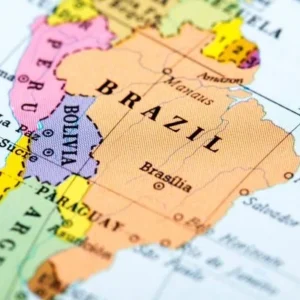COP30, scheduled for November 2025 in Belém, Brazil, is poised to be a pivotal moment for global climate action. It will be the first major summit following the Paris Agreement’s Global Stocktake at COP28, signaling a shift from pledges to concrete delivery. Observers note that Belém will test whether the climate community can transform promises into practical outcomes.
Brazil’s selection as host reflects its unique position in the climate landscape. The Amazon rainforest, a crucial global carbon sink covering nearly 40% of the world’s tropical forests, faces increasing threats from deforestation and climate stress. As Latin America’s largest economy, Brazil wields significant influence on regional climate and development policies. The country has advanced renewable energy, sustainable agriculture, and social protection initiatives, illustrating how climate ambition can intersect with social equity and resilience. Additionally, Brazil’s recent leadership roles in the G20 and BRICS position it as a multipolar bridge between developed and developing nations.
The Brazilian presidency has emphasized that COP30 must prioritize implementation, inclusion, and innovation. Key agenda items include the ‘Belém Package’ covering forests, finance, adaptation, just transition, and gender; the launch of the Tropical Forest Forever Facility, a $125 billion finance mechanism for forest conservation; and progress on mobilizing $1.3 trillion annually in climate finance by 2035. Brazil is also promoting inclusive governance through initiatives like the ‘Global Mutirão’, which brings Indigenous peoples, local governments, and civil society closer to decision-making.
Despite these ambitions, Brazil faces several challenges in delivering COP30 outcomes. Domestic tensions between economic interests, such as agribusiness and mining, and climate leadership could complicate policy execution. Securing climate finance commitments amid donor fatigue and fiscal constraints remains politically sensitive. Geopolitical polarisation, particularly the anticipated U.S. withdrawal from the Paris Agreement, may hinder consensus-building. Additionally, logistical and infrastructure limitations in Belém could affect inclusivity and the smooth execution of the summit.
The broader geopolitical context underscores Brazil’s bridge-building role. With the U.S. stepping back, the BRICS expansion challenging Western-led governance, and the EU and China cautiously engaged, Brazil’s non-aligned diplomacy, stewardship of the Amazon, and convening power through G20 and BRICS leadership provide a unique opportunity to mediate between diverse blocs. Successful navigation of this landscape could restore credibility to multilateral climate action.
Organizations like E Co highlight the importance of translating complex climate negotiations into actionable strategies. Drawing on over 25 years of experience in climate finance and Latin America, including projects in Brazil, E Co supports governments and civil society in developing investment-ready strategies that anticipate and respond to COP30 outcomes.
In conclusion, COP30 in Brazil represents more than a typical climate conference; it embodies both the urgency of global environmental challenges and the potential for transformative solutions. Brazil’s strategic position, combined with expert guidance from organizations like E Co, aims to ensure that the summit produces practical, actionable results that advance global climate ambition.







